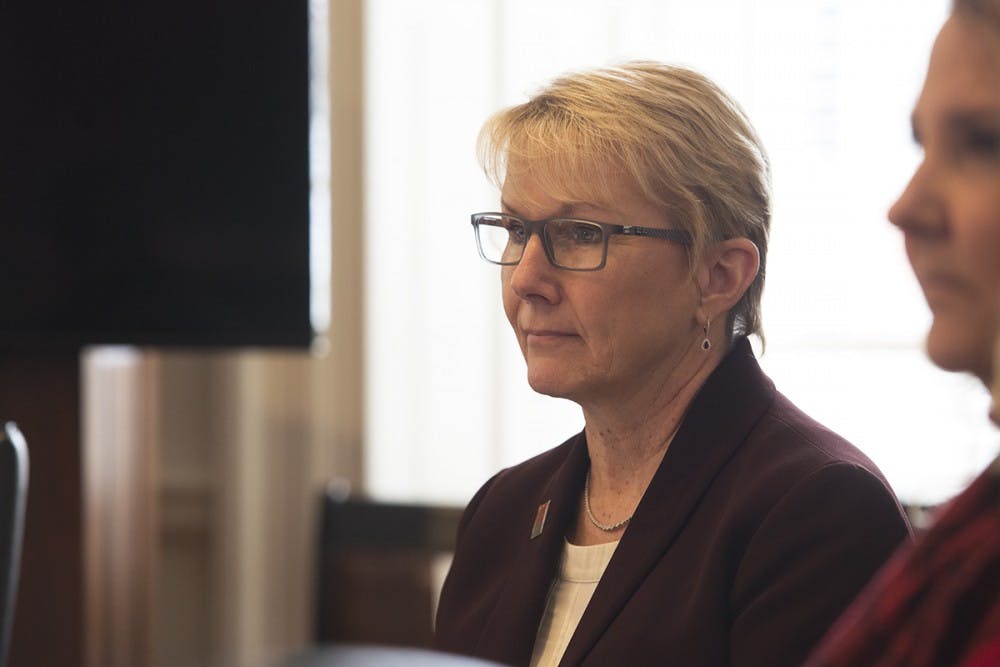The Board of Visitors Committee on the U.Va.’s College at Wise met earlier this month to introduce a new marketing and branding initiative and to discuss the reduced tuition program in the Appalachian region. The Committee also heard a report on the 2018 fall enrollment at Wise.
The University’s College at Wise Chancellor Donna Price Henry presented Wise’s enrollment reports for the Fall 2018 to the Board. Based on current data, the College’s total enrollment has dropped from 2,099 to 2,066 since the previous year, exhibiting a slight decrease of 1.6 percent. 45 percent of the students enrolled in wise are from Southwest Virginia, 15 percent from Northern Virginia, 12 percent from Central Virginia and 10 percent from Tidewater. The remaining 15 percent are out-of-state with student athletes making up the majority of the out-of-state enrollment.
“A large portion of our enrollment is from Southwest Virginia and therein lies the reason why we continue to see the decline in enrollment,” Henry said. “The demographics in Southwest virginia are declining.”
Henry stated that the population decline in Southwest Virginia is a regional issue that needs to be addressed and it has led to a 20 percent decrease in enrollment for community colleges across the state.
Henry also updated the Board on the proposal to expand a reduced tuition program for out-of-state students in the federally defined Appalachian Region — an area of 205,000 square miles which spans parts or all of 13 states from southwest New York to northeast Mississippi. She noted that Virginia Gov. Ralph Northam is in favor of the proposal, and they are hopeful the legislation will be approved.
“We have pre-filed the legislation to allow us to reduce tuition for the students who are in that Appalachian region and the governor is very supportive of the proposal,” Henry said. “We’ve requested that the legislation be pre-filed as emergency legislation which means once the house and senate approve it, it will go directly to the governor for signature.”
It is not clear yet by how much the tuition for out-of-state students will be reduced once the legislation gets approved. Henry's initial plans are to reduce tuitions to in-state levels but the committee will have the flexibility to change the tuition.
During the presentation, Henry announced that David Martel — the University Vice President for Communications and Chief Marketing Officer — has been helping Wise with developing a new marketing and branding initiative to raise awareness for the college and use new advertising methods to recruit students.
“We’re starting to think about what the capacity of [the] college is and what sort of enrollment it could manage with its current infrastructure,” Martel said. “We’re not going to solve all of these challenges in one year but if we start chipping away at it we’ll hope to have some incremental improvement by the Fall of 2020.”
A. Bruce Cahoon — a faculty consulting member at U.Va Wise — introduced a new National Science Foundation Grant that was funded for the college. The grant is a total $650,000, $410,000 of which is used for scholarships while the rest is used for Graduate Record Examination fees, conference travels, student research and internship supports.
“This is the largest National Science Foundation award to U.Va Wise,” Cahoon said. “It was a highly competitive program and we’re very proud of it. The inspiration came from our recruiting problem. We have talented students that were having problems finishing their degrees due to their socioeconomic status.”
The award was made to test the efficiency of approaches to retaining financially challenged students in STEM fields and prepare them for graduate school and work force. These approaches include freshmen and transfer success coaching, general chemistry coaching, close faculty mentoring, assistance with writing in natural sciences, research experiences and summer internship programs.







